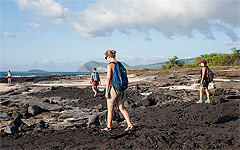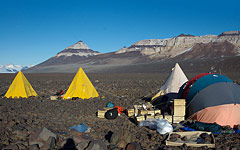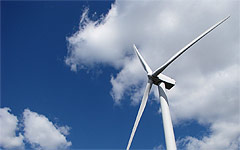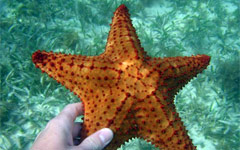CAS scientists are constantly engaged in collaborative research and teaching with other scientists from around the globe. For example, some of our physicists are connected with the Large Hadron Collider at the CERN laboratory in Geneva. Our scientists also seek to understand and teach about the different regions of the world, how they are related, and how they affect each other. Some examples come from the diverse areas of environmental research:
Center for Ecology & Conservation Biology

The Center for Ecology & Conservation Biology offers a semester-long Tropical Ecology Program in collaboration with the Universidad San Francisco de Quito in Ecuador at the Tiputini Biodiversity Station. This program provides a unique 18-credit program in which students study the ecology of tropical Ecuador through intensive field-based learning experiences.
Earth Sciences in Antarctica

The Department of Earth Sciences travels annually to Antarctica with his students to study the history of the Earth by examining the ancient ice. Their work helps us understand the history of the Earth’s climate and the history of Mars.
Center for Energy & Environmental Studies

The Center for Energy & Environmental Studies, associated with the Department of Geography & Environment, helps us understand crucial issues related to energy supply, technology, and use, and how they affect the world in which we live.
Boston University Marine Program

We can’t understand our world without understanding our oceans. Our interdisciplinary group of scholars has come together to form the incomparable Boston University Marine Program (BUMP), featuring a hands-on research-oriented curriculum.